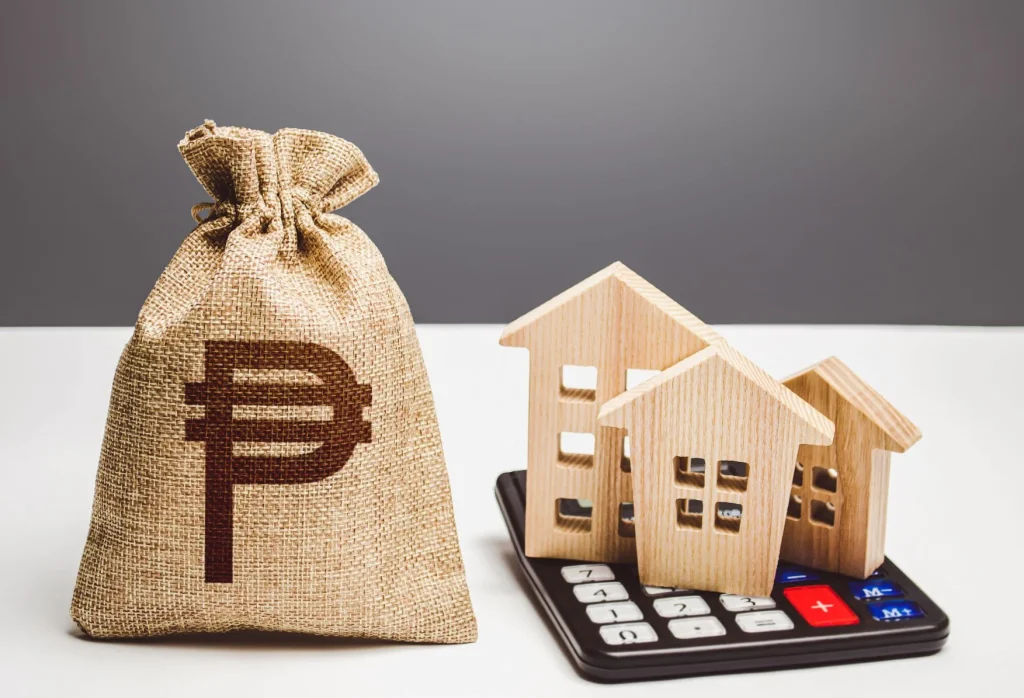Overseas Filipino Workers (OFWs) are seeking investment income opportunities when purchasing an RFO house and lot and other real estate in the Philippines. Real estate is a big investment—you can enjoy an excellent rate of returns, tremendous tax advantages, and leverage to build your wealth. If you’re looking to invest in real estate, now may be just the perfect time for it.
The Philippine Real Estate Industry Sees an Upward Trend
At a time of rising demand and increasing property prices during a recovering economy, the Philippine real estate industry foresees a favorable upward trend. So if you’re thinking about buying or selling your RFO house and lot, now may be a good time.

In a recent briefing, Colliers Philippines officials stated that they anticipate a ‘nascent recovery’ with mid-income and luxury residential projects likely to retain their resiliency throughout the remainder of 2022.
The sudden demand in the Philippine property segment is partly due to the renewed spending confidence of overseas Filipino workers (OFWs), increasing the dollar’s value with consistent remittances sent to the country. Real estate analysts believe that OFWs will continue to drive the real estate demand, especially under affordable and mid-income projects.
According to the most recent Residential Real Estate Price Index (RREPI) from Bangko Sentral ng Pilipinas, the residential segment has remained resilient despite market volatility. Residential property prices nationwide increased by 2.6% compared to the same period a year ago and by 1.6% against the previous quarter, as reported by the Q2 RREPI. Additionally, residential property prices have increased by 6.3% in the capital region in the second quarter, primarily due to rises in the cost of townhouses and condominium units.
“Rather than for primary residence or end-use, kababayans abroad are more and more convinced to buy properties back home because of rental income or opportunities in the secondary market in the future,” says Bong Barrameda Gutierrez, the founder and chief strategist of real estate brokerage Bahay sa Pinas USA.
To illustrate this opportunity, take creative fashion stylist Evalyn Mariano as an example, an OFW who has tapped into the potential of Philippine real estate. The overwhelming success of Balai Mariano—her invested condominium unit, turned into a rental getaway—has inspired the couple to consider purchasing another property, as they do have plans to return to the Philippines in the future.
“Me and my husband were hesitant at first, primarily because we did not have any idea or experience when it comes to real estate investing. But in 2016, we decided to purchase a unit in SMDC’s Fame Residences in Mandaluyong City,” she shared.
The chance to make a real estate investment could not have come at a better time, despite the fact that Evalyn and her husband had never actually planned for it. The couple was dedicated to giving their growing family a better future, and investing in real estate proved to be their winning lottery ticket.
This shows that despite rising interest rates and high inflation, a few things will support the recovery of the residential sector, such as better consumer and business sentiment, flexible payment terms, the anticipated 4% increase in remittances sent by OFWs, and general economic improvement. These push factors will uplift the Philippine economy, slowly but steadily.
How to Maximize Earning Opportunities in Real Estate

There are a plethora of ways to invest in an RFO house and lot and pretty much any real estate. For example, you can profit by managing properties, investing in cities with growth potential, buying and selling houses through auctions, coaching, working in a leasing office, or becoming a contractor. Particularly, here are five strategies to maximize your earning opportunities in real estate:
1. Long-term residential rentals
If you’re looking to maximize your potential for earning opportunities, a residential rental may be a great investment for a reliable income flow. Investment in long-term buy-and-hold residential rentals is one of the most popular ways to profit from real estate. This market is always in demand, particularly the need for investing in rental properties is constant since people will always need places to live.
This particular strategy involves using a more traditional method to profit from the real estate market. Real estate investors use this investment method to buy a property and keep it for an extended period of time. The house can either be rented out for a while or just left empty with the intention of selling it for a profit when the value appreciates.
The importance of location cannot be overstated when considering long-term real estate investment.
It matters more than the current state of the property. The finest investment you can make is in a run-down home in a desirable neighborhood. This holds true for both an increase in asset value over time and your ability to quickly find a long-term tenant for your property.
2. Commercial real estate
To maximize your earning opportunities, you may consider dabbling in one of the most lucrative sectors of the real estate market for both income and profit—commercial real estate. It’s a type of property intended for business and retail purposes. As long as you can figure out how to add value to the exchange, you’ll find that the most significant sources of revenue can come from investing in commercial real estate.

Investing in commercial real estate is one of the best ways to get into the real estate business and make a lot of money. Commercial real estate developers concentrate on developing these properties, adding value to homes to boost their net revenues through upgrades and renovations.
They also offer advice on initiatives that may require more experienced real estate investors to see through to completion.
Office space and retail are always necessary for people to conduct their businesses. The real estate market depends heavily on these physical sites. As you advance, you can discover ways to create short-scale or large-scale structures. Therefore, there is always a market for this sort of investment.
3. Vacation rentals
The idea of vacation rental investments has become increasingly popular in recent years, and for good reasons: the development of the private accommodation industry and the economy’s expansion have made it much simpler for people to take more vacations. Additionally, as the economy continues to recover, more individuals have disposable income to spend on holidays.
Vacation rentals are simply an RFO house and lot or a property that has furnished residences, houses, resorts, or complexes professionally managed as an alternative to hotels. These short-term rental homes are equipped with essential amenities, and stays are commonly limited to a month.

Contrary to popular belief, owning a vacation rental property is not exactly the same as investing in traditional real estate. It takes extensive market research and projected revenue to purchase a vacation rental property. It can be a great way to use investment property to generate income while also using it for short vacations or as an addition to your portfolio.
A vacation rental investment is a great way to use your RFO house and lot property and break into the passive income community. However, it’s not enough to jump in headfirst without a plan. The advantages of purchasing a vacation real estate property include increased cash flow, tax advantages, and the ability to vacation in a home you already own. Those who have conducted proper planning, and adequate research, and are prepared to invest might find that investing in vacation rental properties will pay off for many years.
4. House flipping
Another strategy would be house flipping in which you don’t necessarily need to purchase rental properties. The practice of purchasing and house-flipping real estate is standard practice. If done the right way, a renovated home can be a great investment and incredibly profitable; being able to sell the house for much more than you paid for it.

Still, as with any rental property, it requires a lot of work. It entails remodeling houses and learning to spot emerging communities where you can resell your acquisitions for a profit. Suppose your home flipping strategy includes construction and renovation. In that case, you are taking on additional risk and incurring significant out-of-pocket expenses. You’ll need building permits for renovations, and costs might be higher than anticipated if you hire contractors or outsource other work.
In order to reduce the amount of work involved, look for houses in developing neighborhoods that don’t require extensive renovations. If you decide to rent the home out while you wait for the value to increase, this could become even more profitable. Just keep in mind to consider the longevity of your location—the area you anticipate becoming trendy may never take off, leaving you with a property that makes it difficult to recover your investment.
5. Invest in your own home
When considering all of the various investment options available in the real estate market, most people don’t think of the home they already live in as an option. You obtain a mortgage, pay your regular installments, and gradually increase your home’s ownership. If there is a lot of demand in your neighborhood, you might be able to profit from the equity when you eventually sell your home.
Investing in your own home can improve long-term wealth building, but average annual returns are lower than you might predict. Although some regions of the country have a much higher home appreciation, your home’s value is not likely to increase significantly, especially when you account for expenses like upkeep, repairs, insurance, property taxes, and mortgage interest.
This is not to say that you shouldn’t ever purchase a home or consider it an investment. You can buy a home for a lot less money than you could with other real estate purchases, thanks to government support for the mortgage market generally and programs that aid first-time homebuyers. Investing in your own home will just give you the best bang for your buck in terms of property value—as well as a nicer house to live in.
Why Should OFWs Invest in Real Estate?
For the longest time, the Philippines has been considered a top-sending country of OFWs and migrant workers, with a significant increase in Filipinos fleeing to foreign countries for more employment and economic opportunities.
Survival forces people to seek greener pastures, this diasporic phenomenon implores the sacrificial life OFWs experience in exchange for a better life outside their motherland. Therefore, OFWs are particularly more meticulous when it comes to managing their finances and allocating their hard-earned money to ensure none of it goes to waste.
Of course, every OFW wants every cent of their money to be well-spent. Not only must they address their family’s needs, but OFWs should also seek stable investment options to make their money work for them.
There are plenty of options in the market—stocks, mutual funds, businesses, insurance plans, and even cryptocurrency being viable options, but the best investment in the market is real estate property.
More wealth may have been generated by the real estate sector than by any other industry. However, people still remain skeptical about getting involved in the market. Most think they need to start with a large amount of capital, but that’s not always the case. If you have done your research and know what you’re doing, you can make money even if you’re just starting out.
Given the potential for property value appreciation, investing in real estate may be the wisest choice for OFWs. Real estate property’s value fluctuates, and it typically does so favorably. Real estate has the ability to increase in value even while you’re asleep, unlike other tangible items like cars and other luxuries that quickly depreciate and lose their value.
When an OFW eventually returns to the Philippines, you will be shocked at how much the land you invested in will end up costing. Basically, the amount of money you will be investing in the property now will be significantly higher in the future. It will just differ when and where you will invest.
Now more than ever, it might be a good time for OFWs to invest in real estate because it can provide a good return on their hard-earned savings while working overseas. Banking on these assets may allow you to profit from various short-term and long-term earning opportunities, especially after the Philippine economy has fully recovered from the global pandemic.
Just like with any investment, there are risks to deliberate over. You must know what you’re doing and consider various aspects when deciding on the best property to invest in. After all, real estate’s resilience is reliant on the fact that it is a tangible asset that you can use for your own needs, hold onto, sell, or rent out, and whose property values will increase over time.
If you decide to invest in properties, make sure you have a plan for how you will recoup your investment and that you are completely informed of the risks you are taking.
Research, research, research!
Explore different properties, inspect desired locations, and consider your financial situation and long-term objectives.
Remember: real estate can be relatively illiquid and cannot be exchanged for cash without a substantial loss, which might be a significant financial commitment. This will ensure that you maximize your income and achieve your investment goals. Taking all of this into consideration, investing in real estate ultimately will allow you to live with ease when you make your eventual return to the Philippines.
Related Blog: The Best Investments You Can Do Right Now


